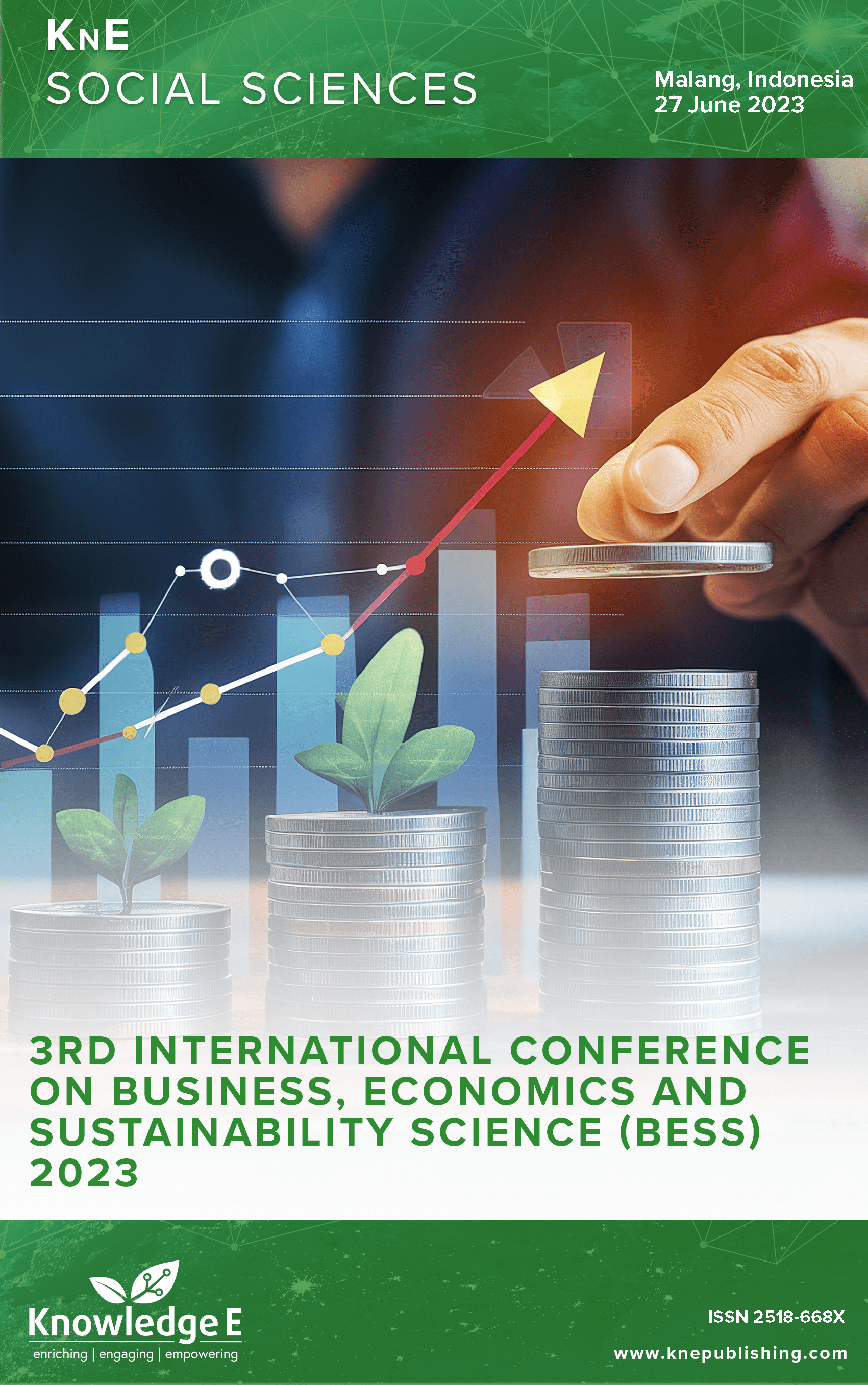Foreign Direct Investment (FDI), Computer Information Technology, Corruption Perceptions, Economic Growth, and Trade Openness in BRICS Countries
DOI:
https://doi.org/10.18502/kss.v9i21.16778Abstract
Given a Indonesia’s openness and exposure to the foreign direct investment (FDI), the current study focusses on FDI, particularly inbound from it, as one of the major local and global factors that affect its economy. There are different viewpoints regarding the this effect because some see it from a positive, optimistic point of view, while some have a negative, pessimistic view that are presented researchers impartially. The goal of this research is to examine FDI, computer information technology, corruption perceptions, economic growth, and trade openness in BRICS countries using panel data from 1990 to 2021. The data used is incoming Foreign Investment data to the BRICS countries. We use the Panel Least Square (PLS) method. Results show that computer information technology, Corruption Perceptions, Economic Growth, and Trade Openness encourage FDI in BRICS countries. The development of information and computer technology has had a significant impact on increasing FDI. The low level of corruption increases investor confidence which has a positive influence on raising the FDI in BRICS countries. Economic growth is certainly an attraction for investors to invest, supported by Trade Openness.
Keywords: Foreign Direct Investment (FDI), Computer Information Technology, Corruption Perceptions, Economic Growth, Trade Openness
References
Amin A, Anwar S, Liu XH. Outward foreign direct investment and economic growth in Romania: evidence from non-linear ARDL approach. Int J Finance Econ. 2022;27(1):665–77. DOI: https://doi.org/10.1002/ijfe.2173
Apergis N, Pinar M, Unlu E. How do foreign direct investment flows affect carbon emissions in BRICS countries? Revisiting the pollution haven hypothesis using bilateral FDI flows from OECD to BRICS countries. Environ Sci Pollut Res Int. 2023 Feb;30(6):14680–92. DOI: https://doi.org/10.1007/s11356-022-23185-4
Bu M, Li S, Jiang L. Foreign direct investment and energy intensity in China: firm-level evidence. Energy Econ. 2019;80:366–76. DOI: https://doi.org/10.1016/j.eneco.2019.01.003
da Silva-Oliveira KD, de Miranda Kubo EK, Morley MJ, Cândido RM. Emerging economy inward and outward foreign direct investment: A bibliometric and thematic content analysis. MIR Manag Int Rev. 2021;61(5):643–79. DOI: https://doi.org/10.1007/s11575-021-00448-9
Dumo, G. A., Ico, H. D., & Magpantay, E. V. Applicability of Harrod-Domar Model in Explaining Economic Growth in the Philippines. Journal of Economics, Finance and Accounting Studies, 5(3), 22-46. https://doi.org/10.32996/jefas.2023.5.3.3. DOI: https://doi.org/10.32996/jefas.2023.5.3.3
Feyisa, H. L. (2020). The World Economy at COVID-19 quarantine: contemporary review. International journal of economics, finance and management sciences, Vol. 8, 2023,pp. 63-74. DOI: https://doi.org/10.11648/j.ijefm.20200802.11
Haudi H, Wijoyo H, Cahyono Y. Analysis of Most Influential Factors to Attract Foreign Direct Investment. Journal of Critical Reviews. 2020;7:1–10.
Hintošová AB. Inward FDI: characterizations and Evaluation. Encyclopedia. 2021;1(4):1026–37. DOI: https://doi.org/10.3390/encyclopedia1040078
Muminov N, Hoshimov P, Muxitdinova N, Umarov O. Investment cooperation in the conditions of globalization: problems and prospects for the development. Int J Psychosoc Rehabil. 2020;24(1):1950–3. DOI: https://doi.org/10.37200/IJPR/V24I1/PR200211
Peirong P, Al-Tabbaa O. The effect of the Chinese government policies on outward foreign direct investment by domestic enterprises: A policy analysis. Strategy Change. 2021;30(6):561–72. DOI: https://doi.org/10.1002/jsc.2469
Petricevic O, Teece DJ. The structural reshaping of globalization: implications for strategic sectors, profiting from innovation, and the multinational enterprise. J Int Bus Stud. 2019;50(9):1487–512. DOI: https://doi.org/10.1057/s41267-019-00269-x
Pradhan AK, Sachan A, Sahu UK, Mohindra V. Do foreign direct investment inflows affect environmental degradation in BRICS nations? Environ Sci Pollut Res Int. 2022 Jan;29(1):690–701. DOI: https://doi.org/10.1007/s11356-021-15678-5
Smallbone D, Saridakis G, Abubakar YA. Internationalization as a stimulus for SME innovation in developing economies: comparing SMEs in factor-driven and efficiencydriven economies. J Bus Res. 2022;144:1305–19. DOI: https://doi.org/10.1016/j.jbusres.2022.01.045
Viphindrartin S, Bawono S. International Economics. Munich: BookRix; 2021.
Wang S, Wang H, Sun Q. The impact of foreign direct investment on environmental pollution in China: corruption matters. Int J Environ Res Public Health. 2020 Sep;17(18):1–10. DOI: https://doi.org/10.3390/ijerph17186477

